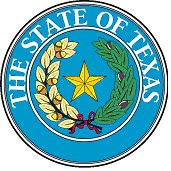Being prepared usually requires more common sense and time than it does money. There are many ways to incorporate prepping into your daily life-style that cost very little but will put you way ahead of the average person. Simple goals are often the easiest to accomplish and will have more benefit for you and your family on an immediate basis.
Focusing on the details, while keeping an eye on the big picture, is not the easiest of tasks. It helps to view it as a jig-saw puzzle whose pieces merely need to be put in place. Being prepared is a goal that will be easier to accomplish if it is broken down into smaller goals.
Prepping also requires a certain amount of organization to be practical. We all experience a certain amount of disorder in our lives. This is often a result of our own doing as well as unexpected circumstances. We have other things that require our immediate attention and these things can often lead us in a different direction than planned originally. Smaller goals will be easier to achieve if we find ourselves getting off the path to preparedness.
One of the easiest and most basic ways to get started in your prepping is to follow the Rule of Three’s.
THE RULE OF THREES
SECURITY
3 seconds: The amount of time you normally have to respond to any threat.
3 minutes: The amount of time to obtain breathable air.
SHELTER
3 hours: The amount of time before you will need some form of shelter.
WATER
3 days: The amount of time you will have to find safe drinking water.
3weeks: The amount of time to find safe and edible food.
COMPANIONSHIP
3 months: The amount of time before you will need contact with other people.
Using the Rule of Threes, you can now establish your short term goals and get started with your prepping. Most people have limited resources that will affect their level of preparation. Start by examining your current resources in each of these critical areas and organize your efforts accordingly. Look for areas in your current resources that may be lacking and work to improve their status in your preparations. Many of the resources that will be required may already exist. They merely need to be organized in a manner so that they will be readily available when needed.
Time is another important consideration when being prepared. While being prepared for the long term is admirable, it is usually impractical and difficult to achieve for the average person who is focused on being prepared. Focus on being prepared for the short term and slowly increase your levels of preparedness. Eventually, you will reach your long term goals.
Plan to get prepared by being more organized, utilizing more of your current resources and managing your time more efficiently to reach your preparedness goals. If you incorporate preparedness into your everyday lifestyle and make it a part of your daily routine, being prepared is a lot easier to accomplish.









